If you’re fascinated by chemistry and its applications in modern science and innovation, we think you’ll enjoy reading about Clemence’s work here at Apeel. As our Senior Process Developer, Clemence Neurohr prepares for, plans, and runs complex experiments to develop the processes behind our plant-based protection. So how did she get here and what does this work look like?
Keep reading to find out!
What does a typical day look like for you and what are you currently working on?CLEMENCE: I’m on the Process Development Team, where we focus on developing processes that make Edipeel compounds in the best way before we hand off to the Manufacturing Team or contractors. My day-to-day is a mix of reading literature, planning for experiments, and running experiments. I typically conduct crystallization experiments or crystal characterization measurements; these measurements include particle size and purity.
How did you get involved in the work you do now?CLEMENCE: I went to engineering school in France where I specialized in chemical engineering applied to pharmaceutical industry operations. Then, I got a Ph.D. in small organic molecules crystallization. I wasn’t very interested beforehand, but I became fascinated with it because crystallization is how matter actually organizes itself in a very repeatable and symmetrical way. After that, I did a post-doc and went to look for something that was more applied to industry problems. And that’s how I got to Apeel.
What is your favorite part about working at Apeel?
CLEMENCE: There are many, but the major one is that I'm not limited in terms of resources. At Apeel, there are so many people, so much enthusiasm, and such nice equipment!
What has been your proudest accomplishment in your career?
CLEMENCE: My postdoc at MIT is a big one. I moved from France to the United States to work for such a big institution. The project I worked on was called Pharmacy-on-Demand and was funded by DARPA (Defense Advanced Research Projects Agency), the agency that financed programs that led to the Internet and GPS. Its mission is to use army funding to create disruptive technology, so the pace and objectives of projects are very ambitious and it pushes people to do cutting edge work. It was very cool and also very intense.
For the project, I helped develop a system where we could manufacture drugs at the point of use for war or natural disaster sites. The end result was a set of refrigerator-size units that were autonomous, automated, and transportable. The ultimate goal of the project was to have a miniature plant in which you would just have to input some ingredients--very basic compounds--type in a recipe, and you would have a pill at the end that a patient could consume right away. I specifically worked on the unit dedicated to purification because chemical synthesis can yield a lot of undesired byproducts. Crystallization was used since it helps purify compounds to very high levels that are safe for patients. I developed scaled down versions of crystallization processes similar to those used in the pharma industry.
My Ph.D. project is also a major accomplishment for me. It also involved crystallization of pharmaceutical ingredients, but I worked with a process that used CO2 as a solvent. When pressurized and heated to a supercritical state, CO2 has organic solvent-like properties. So, we used this method to make crystallization occur, and it would be considered a “green” process. This is because CO2 is a greener and safer ingredient than other solvents like hexane.
If you could have dinner with anyone, living or deceased, who would it be and why?
CLEMENCE: I’m very interested in spirituality, which can be a bit weird for a scientist. I'm interested in people who are “enlightened” like Jesus or Buddha, so I’d love to speak with someone like that. There is an enlightened yogi that I am a big fan of named Sadhguru. He has a perception of life that is really interesting. His main goal today is to raise human consciousness so that humanity lives more responsibly. Among many projects, he launched the Rally for Rivers in India in 2017, considered the largest environmental movement in the history of humanity.
Thanks Clemence!
Do you want to work at Apeel? Apply for a job at Apeel Sciences by clicking the button below!


